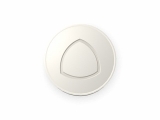Erectile dysfunction icd
If you're struggling with erectile dysfunction (ED), you're not alone. Millions of men around the world are affected by this condition, which can have a negative impact on their relationships and quality of life. The good news is that ED is a treatable condition, and the first step is getting an accurate diagnosis.
At our clinic, we use the International Classification of Diseases (ICD) to diagnose ED. This system is used globally and provides a standardized way of identifying and tracking medical conditions. With our expertise and the latest diagnostic tools, we can determine the cause of your ED and develop a personalized treatment plan.
Our treatment options include medications, lifestyle changes, and therapies. We work with you to find the best approach for your needs and preferences, so you can regain your sexual confidence and enjoy a fulfilling sex life.
"ED can be a challenging condition to deal with, but it's important to know that there are effective treatments available. Don't suffer in silence - reach out to our clinic today and take the first step toward a happier, healthier future."
Understanding Erectile Dysfunction
What is Erectile Dysfunction?
Erectile Dysfunction (ED) or impotence is a common condition that affects a man’s ability to achieve or maintain an erection firm enough for sexual intercourse. ED can be a result of various factors, including physical, psychological, or a combination of both.
How is ED Diagnosed?
The diagnosis of ED involves a physical examination, review of medical history, and several diagnostic tests to determine the underlying cause. The most commonly used diagnostic test is a penile duplex ultrasound, which measures blood flow to the penile arteries.
Effective ED Treatment Options
The treatment for ED depends on the underlying cause and may include lifestyle changes, medication, or surgery. Lifestyle changes such as quitting smoking, reducing alcohol consumption, regular exercise and a healthy diet can improve ED symptoms.
- Medication: Oral medication such as Sildenafil, Tadalafil, and Vardenafil are effective in treating ED by improving blood flow to the penis.
- Vacuum Erection Devices: These are non-invasive devices that create a vacuum around the penis and increase blood flow to the penis, resulting in an erection.
- Penile Injections: Alprostadil is an injection administered directly into the penis, which can help produce an erection in about ten minutes.
- Surgery: In severe cases, surgery may be required to treat ED. Penile implants, also known as prostheses, are surgically implanted within the penis and allow the patient to control the timing and duration of their erections.
It is essential to consult with a healthcare provider to determine the appropriate treatment for ED. With proper diagnosis and treatment, most men with ED can regain their sexual function and enjoy satisfying sexual relationships.
Diagnosis of Erectile Dysfunction
Medical History and Physical Exam
A medical history and physical exam are the first steps in diagnosing erectile dysfunction (ED). Your healthcare provider will ask you questions about your symptoms, medical history, medications, lifestyle factors, and sexual history. They will also perform a physical exam, including an examination of your penis and testicles.
Blood Tests
Blood tests can help identify underlying health conditions that may be causing ED. These tests may include measuring your blood sugar levels, lipid profile, hormone levels, and thyroid function.
Urinalysis
A urinalysis can help detect certain health conditions, such as diabetes and kidney disease, that may be contributing to ED.
Psychological Evaluation
An evaluation by a mental health professional may be recommended, as psychological factors, such as stress and anxiety, can contribute to ED.
Imaging Tests
Imaging tests, such as an ultrasound or MRI, may be used to evaluate blood flow in the penis and identify any structural abnormalities.
If you are experiencing symptoms of ED, talk to your healthcare provider. They can help determine the underlying cause and recommend appropriate treatment options.
Treatment Options for Erectile Dysfunction
Medications
One of the most common treatment options for erectile dysfunction are medications known as PDE5 inhibitors, which work by increasing blood flow to the penis. Examples of PDE5 inhibitors include sildenafil (Viagra), tadalafil (Cialis), and vardenafil (Levitra). These medications are typically taken an hour before sexual activity and can be effective for up to four hours.
Other medications used to treat erectile dysfunction include alprostadil, which is a type of prostaglandin that can be injected into the penis or inserted into the urethra as a suppository, and testosterone replacement therapy for men with low levels of this hormone.
Lifestyle Changes
Lifestyle changes can also help improve erectile dysfunction. Quitting smoking, reducing alcohol intake, and losing weight are all recommended as ways to improve erectile function. Regular exercise has also been shown to increase blood flow to the penis and may improve erectile dysfunction.
Treatment Devices
There are several devices available to treat erectile dysfunction, including vacuum erection devices (VEDs) and penile implants. VEDs use a vacuum to help draw blood into the penis, while penile implants involve surgically placing a device into the penis that can be inflated to create an erection.
Counseling
Counseling and therapy may also be recommended for men with erectile dysfunction, particularly if the cause is psychological. Cognitive-behavioral therapy (CBT), sex therapy, and couples therapy may all be helpful in addressing psychological factors that contribute to erectile dysfunction.
- Medications such as PDE5 inhibitors can help improve blood flow to the penis
- Lifestyle changes like quitting smoking and losing weight can also improve erectile function
- Treatment devices like vacuum erection devices and penile implants are options for some men
- Counseling and therapy may be recommended for psychological causes of erectile dysfunction
Choosing the Right Treatment
Types of Treatment
If you are experiencing erectile dysfunction, it is important to seek help from a healthcare provider. There are several types of treatment options available:
- Oral Medications: Medications such as sildenafil (Viagra), tadalafil (Cialis), and vardenafil (Levitra) can help increase blood flow to the penis, improving erectile function.
- Injections: Injections of medication directly into the penis can also improve blood flow and help achieve an erection.
- Vacuum Devices: A vacuum device can be placed over the penis and used to draw blood into the erectile tissues, creating an erection.
- Surgery: In some cases, surgery may be necessary to repair blood vessels or nerves that are causing erectile dysfunction.
Choosing the Right Treatment for You
When choosing a treatment for erectile dysfunction, it is important to consider several factors:
- Medical History: Your medical history may affect which treatment options are safe for you. It is important to discuss your medical history with your healthcare provider before choosing a treatment.
- Cost: The cost of treatment can vary depending on the specific medication or device. Be sure to discuss the cost of treatment with your healthcare provider and your insurance provider.
- Side Effects: Each treatment option may have different side effects. It is important to discuss potential side effects with your healthcare provider before choosing a treatment.
- Effectiveness: Each treatment option may have different rates of effectiveness. Your healthcare provider can help you choose a treatment that is likely to be effective for you.
Overall, choosing the right treatment for erectile dysfunction is a personal decision that should be made in consultation with a healthcare provider. With the right treatment, many men are able to regain their sexual function and improve their overall quality of life.
Lifestyle Changes to Improve Erectile Function
Dietary Changes
Eating a healthy diet rich in fruits, vegetables, whole grains, lean proteins, and healthy fats can improve erectile function. Avoiding processed foods, saturated and trans fats, and excess sugar can also be helpful.
- Include lots of leafy greens, berries, citrus fruits, and nuts in your diet.
- Limit your intake of red meat and dairy products.
- Avoid fried and fast foods.
Exercise
Physical activity can improve erectile function by increasing blood flow, reducing stress, and improving overall health. Aim to exercise for at least 30 minutes a day, most days of the week.
- Try aerobic exercise like brisk walking, running, or cycling.
- Incorporate strength training into your routine.
- Consider yoga or other stress-reducing activities.
Quit Smoking
Smoking can damage blood vessels and reduce blood flow to the penis, leading to erectile dysfunction. If you smoke, quitting can improve your erectile function.
Reduce Alcohol and Drug Use
Excessive alcohol and drug use can interfere with erectile function. Limit your intake of alcohol and avoid illegal drugs.
Manage Stress
Stress can affect erectile function. Find ways to manage stress, such as meditation, deep breathing exercises, or therapy.
- Maintain a work-life balance.
- Spend time with loved ones.
- Engage in activities you enjoy.
Get Enough Sleep
Lack of sleep can contribute to erectile dysfunction. Aim for 7-8 hours of sleep per night.
Consider Supplements
Some dietary supplements, such as L-arginine, ginseng, and yohimbe, may improve erectile function. However, it's important to talk to your doctor before taking any supplements, as they can interact with medications or have side effects.
Follow us on Twitter @Pharmaceuticals #Pharmacy
Subscribe on YouTube @PharmaceuticalsYouTube





Be the first to comment on "Erectile dysfunction icd"